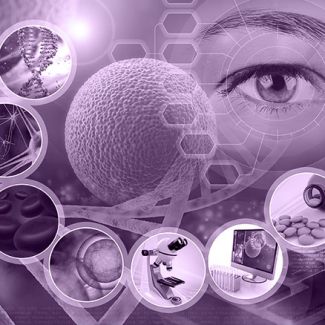Apport des outils bio-informatiques à l'étude de pathologies humaines par l'analyse de réseaux moléculaires et à l'amélioration des pratiques en génétique médicale.
The contribution of bioinformatics tools to the study of human pathologies through the analysis of molecular networks and the improvement of medical genetics practices.
Jury
CoDirecteur de these - BONNET - Céline - UNIVERSITE DE LORRAINE
Rapporteur - NIARAKI - Anna - UNIVERSITE TOULOUSE 3
Rapporteur - THALABARD - Jean-Christophe - UNIVERSITE PARIS CITE
Examinateur - CALZONE - Laurence - INSTITUT CURIE
Président - MEYRE - David - UNIVERSITE DE LORRAINE
Examinateur - BOSSENMEYER-POURIé - Carine - UNIVERSITE DE LORRAINE
Examinateur - YAUY - Kevin - UNIVERSITE DE MONTPELLIER
école doctorale
BioSE - Biologie Santé Environnement
Laboratoire
NGERE - Nutrition-Génétique et Exposition aux Risques Environnementaux
Mention de diplôme
Sciences de la Vie et de la Santé - BioSE
Salle Gallé
Présidence de l'université de Lorraine
2 Av. de la Forêt de Haye
54500 Vandœuvre-lès-Nancy
Mots clés
réseau protéique,intégration,omic,covid19,Signature Moléculaire,Modélisation,
Résumé de la thèse
Faciliter l'interprétation des données générées par séquençage haut-débit et l'accès à ces technologies est un des défis majeurs actuels.
Le premier chapitre de mon travail, développé en parallèle des deux suivants, se focalise sur l'optimisation du temps d'expertise en génétique médicale par la conception d'une application : GeneTree. Il s'agit d'une application Web open-source créée sur la base de d'une problématique concrète : la redondance des saisies en pratique clinique.
Keywords
network-based,integration,omics,covid19,Molecular Signature,modelling,
Abstract
Facilitating the interpretation of data generated by high-throughput sequencing and access to these technologies is one of today's major challenges. Systems biology, the study of interactions between the components of a biological system, makes it possible in particular to exploit high-throughput sequencing data, such as transcriptomic or epigenetic data, to study complex processes such as cancer or immunity.
The first chapter of my work, developed in parallel with the next two, focuses on the optimization of expertise time in medical genetics through the design of an application: GeneTree.




